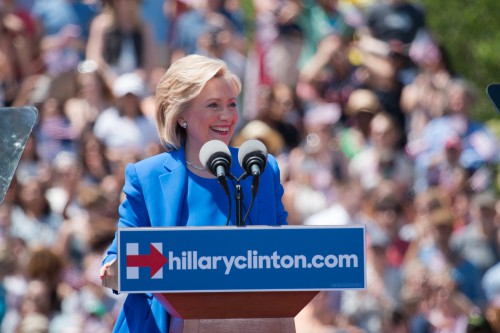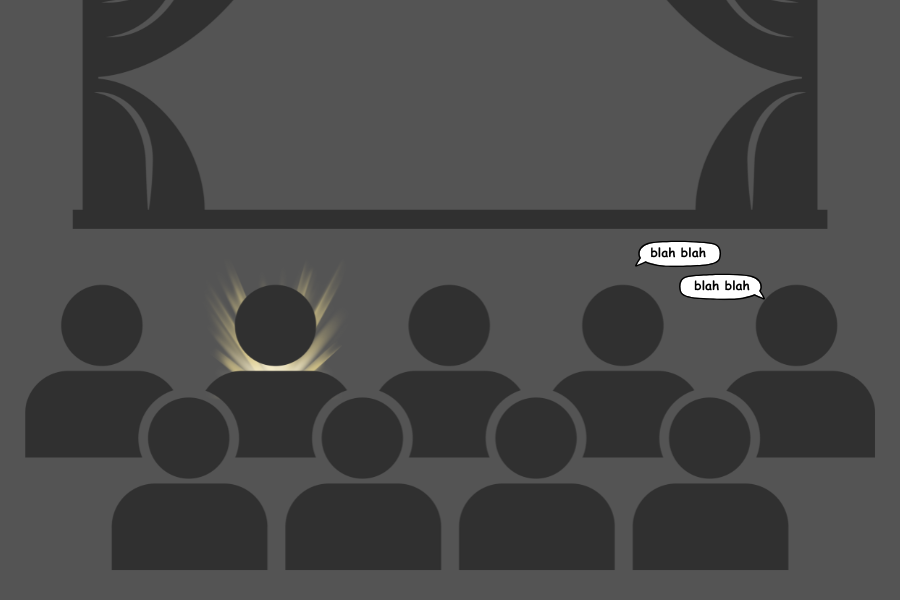
By Maggie Randall
She rehearsed this phrase over and over, leading up to the moment she could say it with a level head in front of a live audience.
“We need a democrat in the White House in January 2017,” said Hillary Clinton, former New York senator and secretary of state, during the first democratic debate hosted by CNN on Tuesday, Oct. 13.
It was Clinton’s conviction, preparedness, and sheer experience that caused her to seemingly win the debate. The debate brought Clinton back into America’s trust following her role in the Benghazi investigations.
The debate had an elevated level of formality and intellect compared to the two preceding Republican debates on Aug. 6 and Sept. 16, likely attributed to the dynamic journalistic skill of moderator Anderson Cooper.
Cooper was persistent and asked questions that challenged candidates, whereas Fox’s Republican debate moderators asked candidates softball questions, and CNN’s moderators for the Republican debate focused solely on pitting candidates against one another.
Alternatively, Cooper stirred conversation between candidates, particularly Clinton and Vermont Senator Bernie Sanders. On gun control, Sanders and Clinton stand in opposition. When Cooper asked if Sanders is “tough enough on gun control,” Clinton said, “No, not at all.”
Later on in the debate, when the subject changed to income inequality and the declining middle class, Sanders accused Clinton of supporting Wall Street, saying, “Congress doesn’t regulate Wall Street, Wall Street regulates Congress.”
Clinton still managed to set herself ahead by separating herself from other candidates while tying herself with the Obama Administration. When asked what Clinton would do about climate change, she said she would “follow what Obama did, but further.”
Moreover, when asked to name one way she will not be a third term of the Obama administration, Clinton said, “Being the first woman president would be quite a change.”
Still, the candidates supported one another overall. Sanders expressed his distaste in the media coverage of the 2016 presidential race thus far, saying, “Enough about the emails, let’s talk about the real issues facing America,” referencing Clinton’s recent email issue, thereby supporting her.
Similarly, Maryland Governor Martin O’Malley supported Sanders and Clinton in their plans to raise the federal minimum wage.
O’Malley summed up the difference between the democratic debate and the Republican debates in his closing remarks.
“You didn’t hear anyone speak ill of anyone,” he said.
Democratic candidates hold more realistic views than the Republican candidates, who display drastic differences in ideologies and political views. Either way, Democratic candidates managed to remain civil.
Governor of Rhode Island Lincoln Chafee and Senator of Virginia Jim Webb also stood on the stage for the Democratic debate, but they did little more than stand. Chafee boasted “30 years of public service in all levels of government” and “no scandals.” However, his experience is no comparison to that of Clinton, who served as secretary of state during President Obama’s first term.
Webb faced issues to the likes of Ted Cruz and Rand Paul during the debate. When asked a question, he began by saying, “I’ve been waiting for ten minutes [to speak].”
Later, he focused more on putting down other candidates than promoting his own policies. He said in response to Sanders’s plea for a political revolution, “I don’t think the revolution is going to come.”
Chafee and Webb reaffirmed their trailing in the polls, just as much as Clinton confirmed her leading in the polls.
Some argue that Sanders beat Clinton, but her views were more thorough and focused. Clinton stayed energized and animated throughout the two-and-a-half-hour long debate. Sanders, though, became spirited only when issues sparked his particular interest.
Clinton articulated her passion in her closing remarks.
“[We need] to make sure we get back to the idea that if you work hard and do your part, you can make it. America’s best days are still ahead,” she said.













